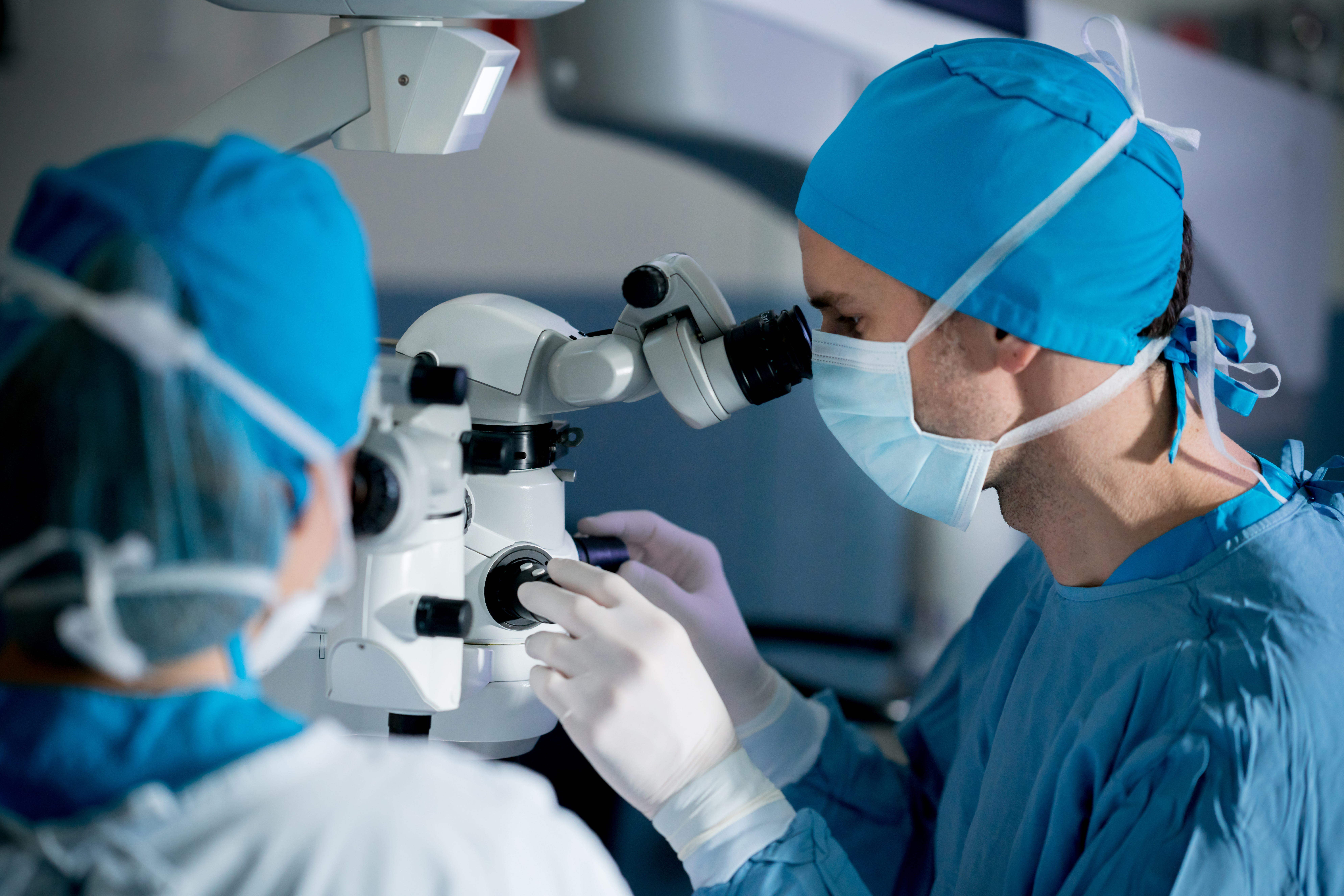
NHS Scotland must maintain its focus on vital ophthalmology innovation
Head of Innovation at InnoScot Health, Robert Rea looks at what can be achieved through collaboration
Amid ongoing post-pandemic challenges for NHS Scotland, ophthalmology remains one of the most pressured healthcare areas – but targeted, empowering innovation holds the key to easing those pressures.
With patients unable to see ophthalmologists and optometrists for face-to-face appointments during the pandemic, waiting lists and backlogs inevitably grew, and some individuals with eye problems saw a worsening of their condition.
While we are now beginning to see gains being made through the NHS recovery plan, there remains a significant accumulation of people still requiring treatment.
The Scottish population has historically suffered from chronic long-term eye diseases, and today, glaucoma alone accounts for more than 60,000 patients.
Nevertheless, some effective solutions have been implemented in recent times to directly target waiting lists.
In December last year, the Community Glaucoma Service (CGS) was announced to offset hospital pressures – essentially identifying and treating lower risk cases in the community through accredited providers, in turn allowing hospitals to look at more serious cases.
Then, earlier this year, it was announced that work was being undertaken with the Golden Jubilee Hospital in Clydebank and others to increase capacity for elective surgeries to minimise knock-on pressure on waiting times, including weekday and weekend capacity support for ophthalmology.
These are important initiatives and key parts of the puzzle – alongside Scotland’s status as the only country in the UK to provide free universal NHS funded eye examinations – but other elements must come into play too.
Indeed, ophthalmology is undoubtedly a rapidly evolving surgical specialty and, over the past few decades, innovations in eye surgery have continued to improve outcomes and safety.
At InnoScot Health, we believe that NHS Scotland’s expert ophthalmologists are best placed to identify where unmet medical needs and bottlenecks in clinical ophthalmology lie. They and their teams deal with those issues every day and have an intimate understanding of what their patients require most at this time, and what they will likely require in the future.
However, like all health and social care staff, ophthalmologists are extremely busy and often do not have the commercial skillset to create and develop the solution that is required and best fits the need.
That is where collaborative relationships come in – fundamentally, identifying the right partners to take forward a great ophthalmic idea and tapping into the knowledge of those with innovation expertise in idea evaluation, intellectual property protection, regulation, project management, product development and more, in order to realise the full potential of an idea.
The result? Accelerated innovation that can improve the lives of both NHS Scotland patients and clinicians.
With that in mind, InnoScot Health is currently looking for forward-thinking ophthalmic solutions that can help support NHS Scotland to strengthen and make meaningful change in this priority area of its recovery plan. For those answering its ophthalmology innovation call, InnoScot Health’s package of support for health and social care staff with fresh ideas includes up to £25,000 of initial funding, regulatory support, project management, and the innovation expertise of its multidisciplinary team.
So far, there have been promising ideas submitted on a range of medical devices; fresh approaches to digital therapy for eye conditions, new ways of improving technology for retinal disease diagnosis, and better management of patients undergoing cataract surgery.
Over the past 20 years, InnoScot Health has had a strong record in this area. It has supported and worked with NHS innovators on ophthalmic innovations including Peekaboo Vision, an app created by NHS Greater Glasgow and Clyde; Multifocal Retinal Imager, developed in collaboration with Wideblue; and the iGrading platform, a diabetic retinopathy screening tool developed alongside NHS Grampian and the University of Aberdeen.
Creating a culture of innovation is key to dealing with a variety of issues across NHS Scotland – and it’s no different in ophthalmology services. If that is to be overcome, then InnoScot Health believes that new ophthalmic ideas will be key to unlocking the solution.
The incredibly powerful effect which innovation can have is not to be underestimated. For instance, last year NHS Tayside’s ophthalmology service was able to double the number of cataract surgical procedures that could be carried out daily thanks to ground-breaking ideation.
The improvements by the ophthalmology team at Ninewells Hospital have included the ability to carrying out simultaneous bilateral surgery on patients with cataracts in both eyes.
The team also sped up its theatre model by introducing a double nursing team working on a ‘tag team’ basis to support the surgeon, in turn cutting down time in between patients and allowing the completion of between 24 to 32 procedures in a single day.
Collectively, this has turned Tayside into the best performing health board in Scotland for cataract surgery.
Innovative thinking is more important than ever then to help mitigate ophthalmic demand with many believing that it will start to move towards virtual reality, robotic eye surgery, drug-eluting contact lenses for pain management, retinal gene therapy for genetic diseases, home-based ophthalmic monitoring – particularly useful for remote parts of Scotland – and much more.
However, breakthrough technologies must start with those who know the landscape best, including all of its challenges and opportunities, and informed by its end users.
This year, there will continue to be issues around the delivery of ophthalmic services – but done correctly and with the right expertise on board, Scottish innovation can form a significant part of both the short and long-term solution.

Our Support
The behaviours of NHS Scotland’s 160,000-strong workforce will influence how the service mitigates and adapts to ophthalmic backlogs and heightened pressures; and so, encouraging this diverse workforce to come up with new ways of working is vital.
The package of support for health and social care staff with ideas to support NHS Scotland includes £25,000 of initial funding, regulatory support, project management and the innovation expertise of InnoScot Health.
Chat